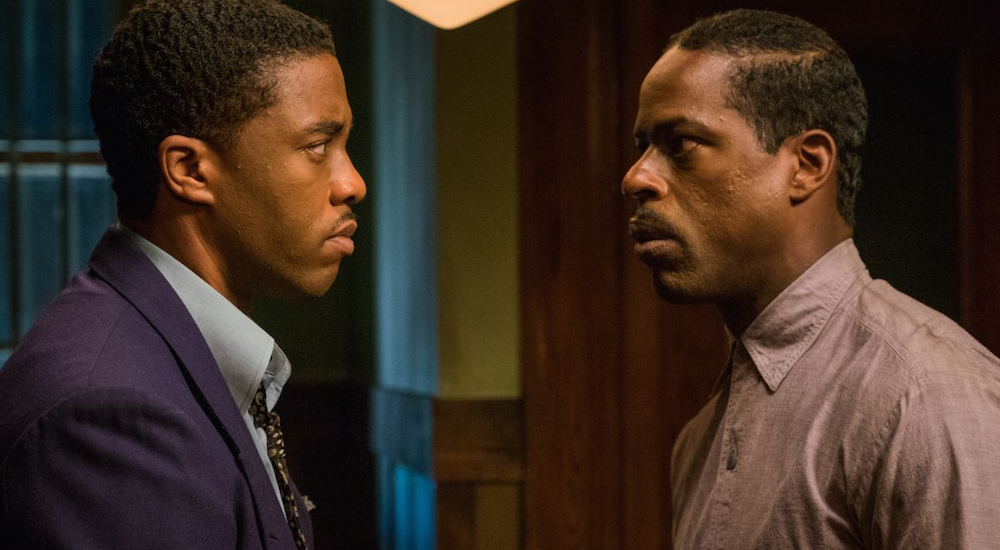No one would blame you for thinking Marshall is just another overly-dramatic biopic about a historic civil rights figure. And, sure, there’s plenty of cheesy, dramatic music, racial injustice, and a happy ending. But, Marshall, thankfully, is not your typical biopic. By focusing on one case from early in his career, the film gives us just enough of a glimpse of the legendary Supreme Court Justice without getting bogged down in trying to encapsulate his entire life.
Rather than try to tell his entire story, director Reginald Hudlin smartly zeroes in on one case from early in Marshall’s career as a lawyer for the NAACP. Down in Bridgeport, CT, in 1940, Marshall is tasked with defending Joseph Spell, a black chauffeur accused of raping his white woman employer, Eleanor Strubing.
The cast for Marshall is stellar. Rising star Chadwick Boseman (aka Black Panther) plays the titular character with all the confidence and ego that a young, successful lawyer working for the NAACP should have. Josh Gad plays his reluctant co-counsel, Sam Friedman, an insurance attorney pushed into taking a case that turns much of his hometown against him. Kate Hudson manages to somehow imbue Mrs. Strubing with such pain and misery that, even though she’s typically the villain, you still end up feeling sorry for her. Rounding out the cast is Dan Stevens as Mrs. Strubing’s swaggering blonde-haired lawyer, Sterling K. Brown as the kind and flawed chauffeur Joseph Spell and stern but fair James Cromwell as the judge.
Marshall capitalizes on the current popularity of the courtroom drama by zeroing in on one case while giving the audience familiar tropes of the genre. Since you know Thurgood Marshall is involved, you know there must be a twist in the case and that the defendant must be innocent, and you know that the lawyers will squabble over picking jurors, discuss possible deals, and yell, “Overruled, your honor!” quite a bit. These tropes are unavoidable because in many cases that’s just how the law works. Still, it gives the audience a familiar road to travel on, which can be both comforting and boring.
Marshall’s characters are anything but stale, each one given three-dimensionality that helps audiences believe in the story. Marshall himself is a great lawyer, with an outsized ego and a job that keeps him away from his wife most of the time. Friedman is, at first, a coward about working on the case while struggling to comprehend what is happening to his family and friends across the ocean in Europe, more disappearing every day. Even Eleanor is given complexity, allowing the audience to damn her actions and empathize with her motivations.
Marshall is certainly not your typical biopic, but leans heavily on the easy tropes of a courtroom drama. It’s an inspiring story of a man, young in his career, destined to accomplish great things and the lives he changed along the way.

